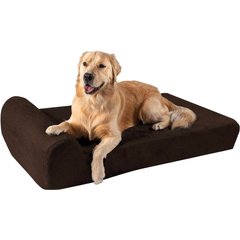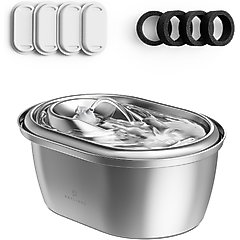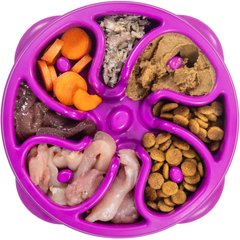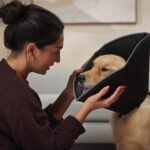What Is Pneumonia in Dogs? How Is It Treated?
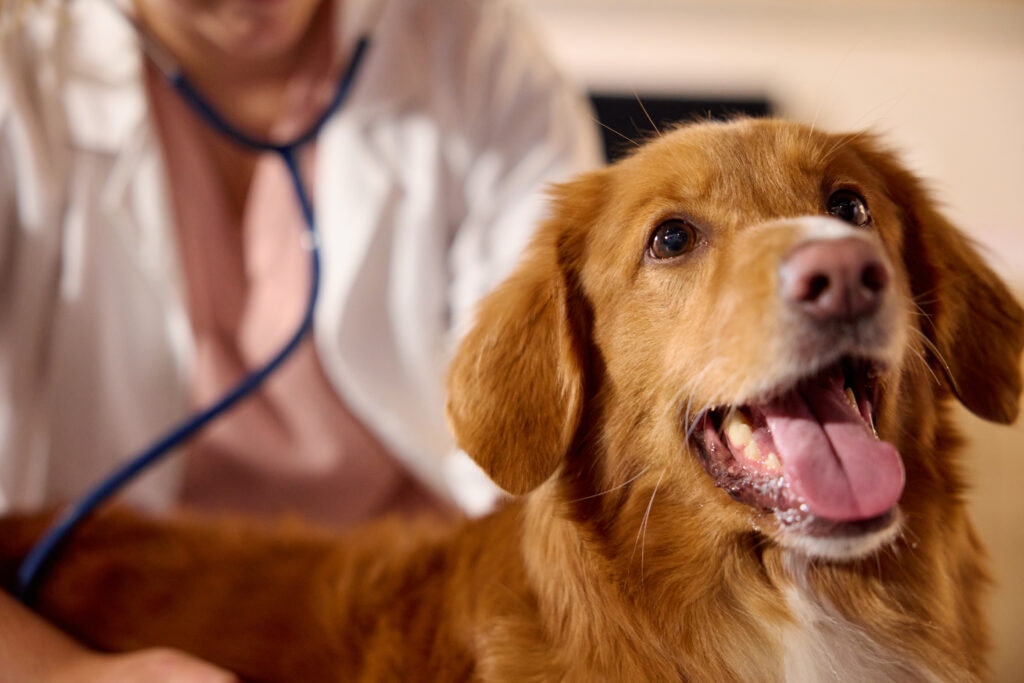
Photo by Chewy
Pneumonia in dogs isn’t just a bad cough—it’s a serious respiratory condition that can make it hard for your pup to breathe and, if untreated, may even become life-threatening.
Because pneumonia can progress quickly, any dog with severe coughing, labored breathing, or extreme lethargy should be taken to a veterinarian right away.
While the condition can be scary, many dogs recover with timely treatment by their vet and proper care at home.
Here’s what you need to know about pneumonia in dogs, including signs to watch for, how it’s treated, and what you can do to help keep your pup healthy.
Key Takeaways
- Pneumonia in dogs is a serious condition that affects the lungs and can quickly become life-threatening if left untreated. Any dog with severe coughing, labored breathing, or blue gums needs immediate veterinary care.
- The condition can have many causes, from bacterial infections to aspiration (inhaling) of food and water. Some dogs—like puppies, seniors, or brachycephalic breeds—are at higher risk.
- Treatment usually requires medication, supportive care, and strict rest, with more severe cases needing hospitalization, oxygen therapy, and IV fluids. With prompt treatment, most dogs make a full recovery.
- Prevention focuses on lowering risk factors. This means keeping vaccines up to date, supporting overall health, and reducing aspiration risks.
What Is Pneumonia in Dogs?
Dog pneumonia is an inflammation (swelling) of the lungs that makes it difficult for your pup to breathe and get enough oxygen due to fluid buildup in the air sacs (alveoli). It can be caused by infections, foreign materials entering the lungs, or other underlying conditions.
Generally, pneumonia is rare in healthy dogs—it’s more common in very young or older dogs, or those with weakened immune systems. It’s also seen in certain breeds prone to respiratory issues during boarding or stressful situations, says Marc Smith, DVM, owner of Natchez Trace Veterinary Services in Nashville, Tennessee.
For example, breeds with short noses (brachycephalic breeds) like Bulldogs, Pugs, and Boston Terriers are at higher risk because of their tight airway structure. They have difficulty clearing irritants from their respiratory tract, says Dr. Smith.
Toy breeds and dogs prone to collapsing trachea, like Chihuahuas, Pomeranians, and Shih Tzus, can also be more vulnerable.
Working and sporting breeds, like Basset Hounds and Labrador Retrievers, sometimes develop pneumonia after heavy exercise in cold or wet conditions, says Sam Varon, DVM, owner of Broadway Veterinary Hospital in Sacramento, California.
What Are the Signs of Pneumonia in Dogs?
Because pneumonia affects the lungs it hampers breathing, which can then decrease energy levels. That can lead to a range of signs, from respiratory distress to lethargy.
If you notice any of the following symptoms of pneumonia in dogs, call your vet to schedule a checkup:
- Persistent cough (wet or dry)
- Runny nose
- Fever
- Rapid or labored breathing
- Wheezing or crackling sounds when breathing
- Lethargy or weakness
- Loss of appetite
- Blue gums (this is a sign of low oxygen and should be treated as an emergency)
What Causes Pneumonia in Dogs?
Pneumonia in dogs can develop for different reasons, and sometimes more than one factor is at play. Some of the most common causes are:
- Bacterial infections. Bacteria are the most common cause, often from inhaled pathogens like Bordetella bronchiseptica (the same bacteria linked to kennel cough).
- Viral infections. Respiratory viruses, like canine influenza or distemper, can increase the risk of pneumonia.
- Fungal infections: In some areas, especially the Ohio and Mississippi River Valleys, dogs may inhale fungal spores (Blastomyces, Histoplasma) that infect the lungs.
- Aspiration pneumonia. Aspiration pneumonia (also called inhalation pneumonia) in dogs develops when food, water, vomit, or medication accidentally enters the lungs instead of the stomach. Normally, a flap in the throat keeps the airway protected, but if your dog vomits, eats too quickly, or has trouble swallowing, that reflex can fail. Once material enters the lungs, it can cause irritation and infection.
- Weakened immune system/other illness. Puppies, seniors, and dogs with chronic conditions like megaesophagus, heart disease, or immune suppression are at higher risk of developing pneumonia, says Dr. Varon.
There are also some environmental factors that increase your dog’s risk of getting an infection or developing aspiration pneumonia, including:
- Poor air quality
- Extreme cold
- Overcrowded kennels
- Stress
- Eating too fast
How Do Veterinarians Treat Pneumonia in Dogs?
If you notice any of the signs of pneumonia or your dog is acting off in any way, bring them to your veterinarian for a checkup as soon as possible.
Dr. Varon says that pneumonia can become life-threatening very quickly, so don’t delay.
Blue-tinged gums and heavily labored breathing are emergencies—these call for a visit to the closest emergency clinic instead of waiting for an appointment with your vet.
If your vet suspects pneumonia, they’ll usually start by doing a physical exam and listening to your dog’s lungs.
They may also order chest X-rays, blood work, or a tracheal wash (collecting fluid from the lungs) to confirm the diagnosis and pinpoint the cause.
Once the cause is identified, treatment can include some or all the following:
- Medication. If the pneumonia is caused by bacteria or fungi, antibiotics or antifungals will be given either orally or intravenously (through an IV) for two weeks or more, Dr. Smith says. He adds that your vet may also prescribe bronchodilators, which increase the size and diameter of the bronchi (the tubes that bring air to the lungs) and decrease resistance to airflow. Some dogs may also need steroids to decrease inflammation.
- Oxygen therapy. For dogs that are struggling to breathe, supplemental oxygen helps stabilize them and ease respiratory distress.
- IV fluids. Dehydration is a common complication of pneumonia, so intravenous fluids can support hydration and help the body recover.
- Nebulization therapy. These treatments reduce irritation, loosen mucus, and make it easier for your dog to clear their airways.
- Strict rest. Keeping activity to a minimum reduces strain on the lungs and allows your dog’s body to heal.
How Can I Help My Dog Feel More Comfortable?
Dogs with pneumonia need extra care at home to feel their best. During their recovery, you can help keep them comfortable by:
- Providing a quiet, stress-free space. Rest is essential for healing.
- Running a humidifier. A humidifier can help keep the air moist and loosen mucus. If you don’t have a humidifier, Dr. Varon says you can sit with your dog in a steamy bathroom for a little while.
- Getting an elevated or orthopedic bed. Beds with a headrest, like this one from Big Barker, support comfortable breathing positions, especially for large or senior dogs.
Recommended Product
- Encouraging your dog to drink. Fresh water or even low-sodium bone broth can help thin mucus and keep your dog hydrated. A water fountain, like the Petlibro Stainless Steel Water Fountain, can keep water fresh and encourage them to drink more.
Recommended Product
- Making sure they eat. Dr. Varon recommends soft, easily digestible foods, like boiled chicken and rice, to encourage eating.
- Following the treatment plan. Always finish the full course of medication, even if your dog seems better. Stopping medicines early can result in a lingering infection that comes back stronger or becomes resistant to treatment.
How Do I Prevent Pneumonia in My Dog?
You can’t prevent every case of pneumonia, but there are some practical things you can do to help reduce the risk and keep your dog’s lungs healthy:
- Keep vaccinations up to date. Core vaccines (like distemper) and optional ones (like Bordetella or canine influenza) can help protect against respiratory infections.
- Examine facilities before boarding. Dr. Smith recommends visiting kennels and boarding facilities to make sure they’re adequately ventilated and not too crowded. Also ask about testing requirements—you want to avoid exposure to sick dogs, especially in these types of environments.
- Reduce the risk of aspiration. Make sure your dog eats in an upright position. Dr. Smith says that lying down can increase the risk of aspiration. If you have more than one dog, it can be helpful to feed them away from each other so that they slow down. Slow-feeding bowls, like the Outward Hound Fun Feeder, may also help.
Recommended Product
- Support overall health. A balanced diet, regular exercise, and routine vet checkups can help strengthen the immune system.
- Targeted treatment for predisposed breeds. For example, in brachycephalic breeds, you might need to get surgical correction of their airways (often referred to as a BOAS repair or soft palate resection) at a young age to prevent future complications, says Dr. Varon.
FAQs About Pneumonia in Dogs
Can dogs recover from pneumonia?
Yes—most dogs recover fully with proper treatment, especially if the pneumonia is diagnosed early. Recovery may take a few weeks, and follow-up vet visits are often needed to ensure the lungs are clear.
What are the four stages of pneumonia in dogs?
The four stages of pneumonia are congestion, consolidation, necrosis, and resolution, Dr. Smith says. These stages span from when your dog first inhales the irritant that triggers lung inflammation through successful treatment.
How can I tell if my dog has pneumonia?
Persistent coughing, nasal discharge, and labored breathing are the biggest red flags. If your dog seems weak, struggles to breathe, or develops blue-tinged gums, seek emergency vet care immediately.
What is the survival rate for dogs with pneumonia?
It depends on the type, but with prompt veterinary treatment, survival rates are generally high (although the outlook is more unsure for puppies, seniors, and immunocompromised dogs). One study reported that 77 to 94% of dogs diagnosed with bacterial pneumonia recover.
